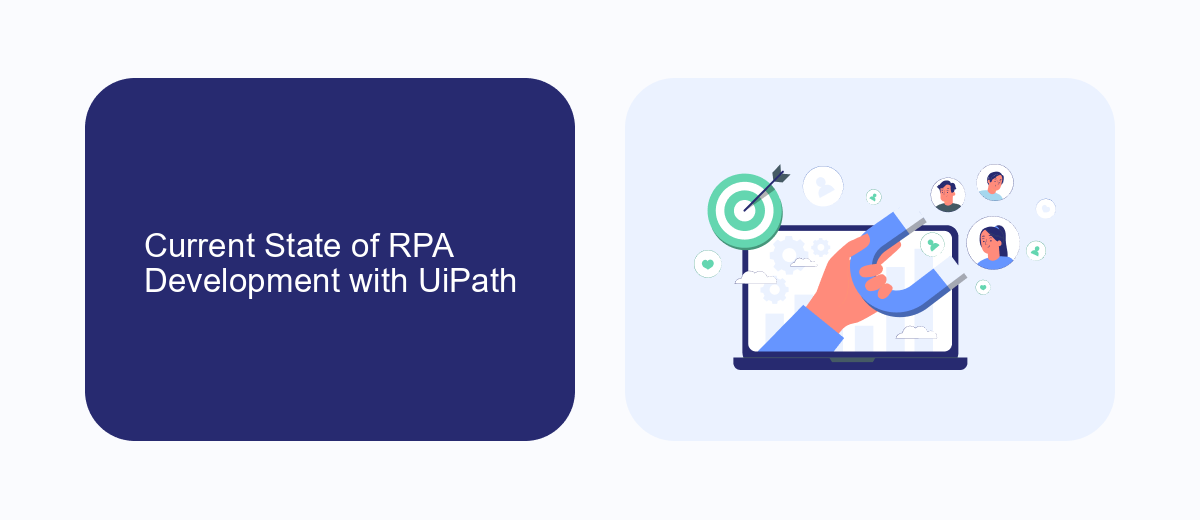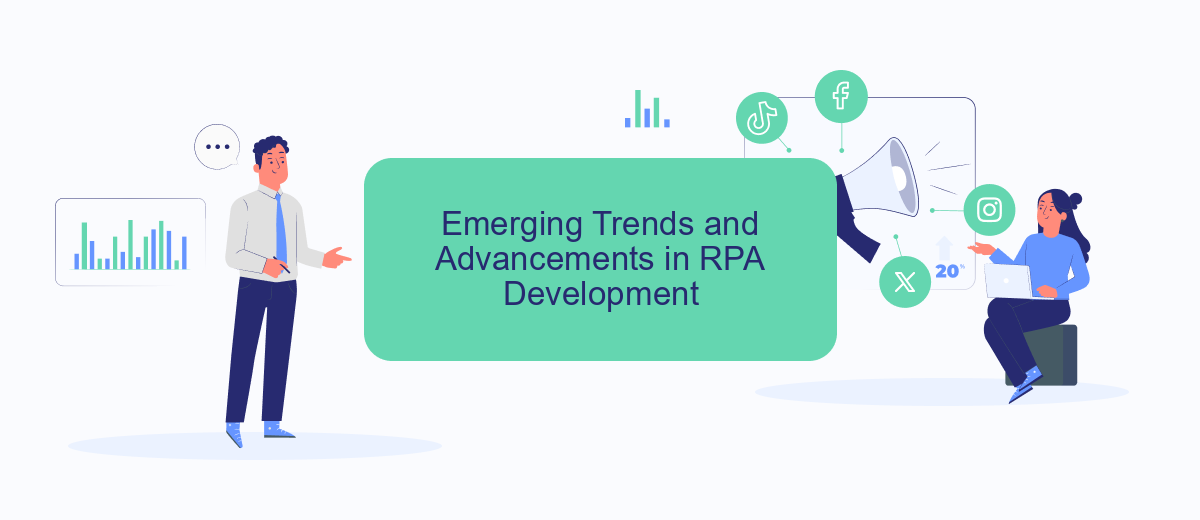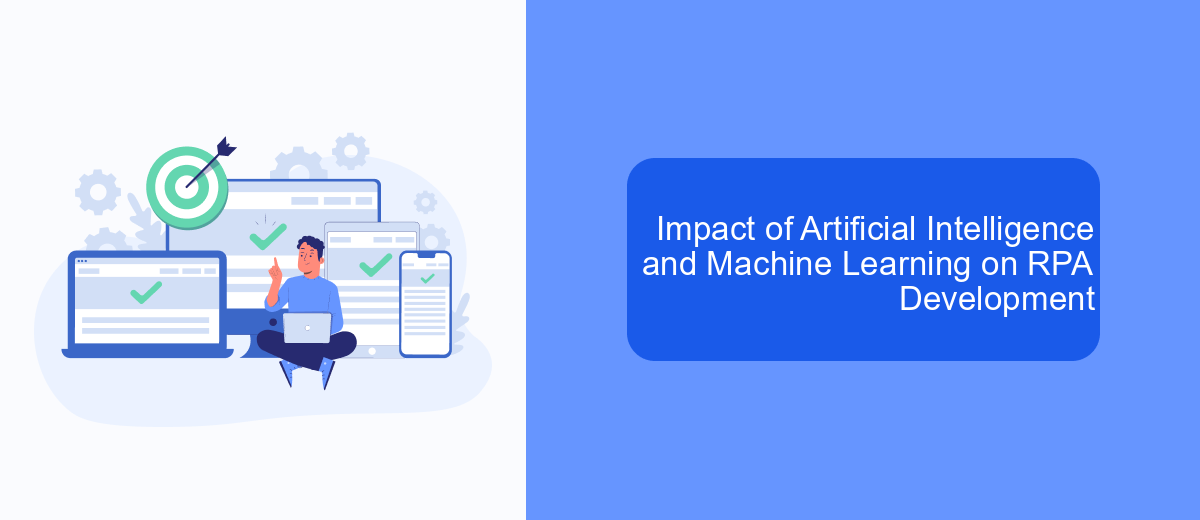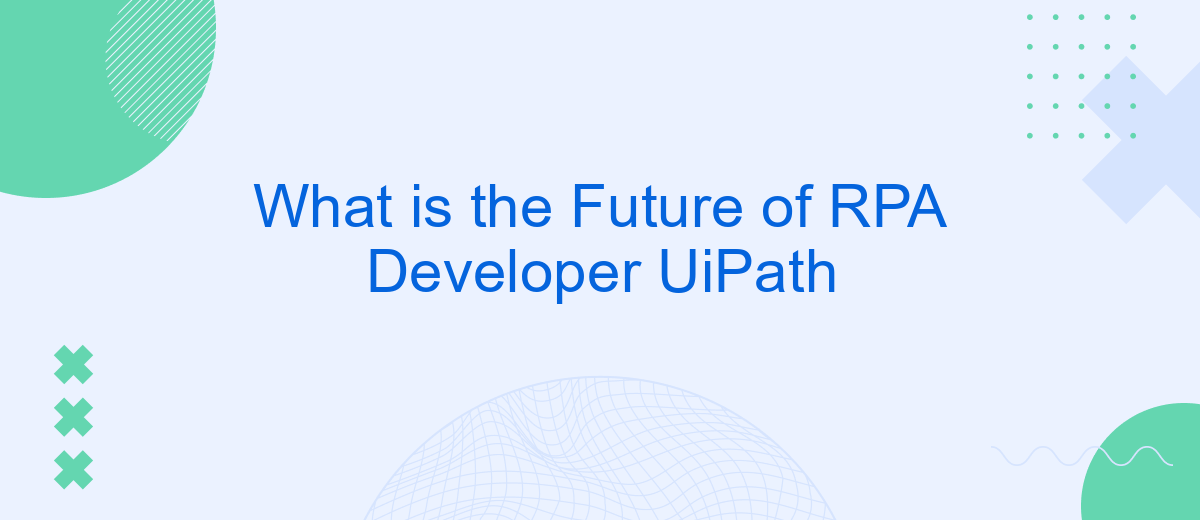The future of RPA (Robotic Process Automation) developers, particularly those specializing in UiPath, looks promising as businesses increasingly adopt automation to streamline operations. With UiPath leading the market in RPA solutions, developers skilled in this platform are poised to play a critical role in driving digital transformation, enhancing productivity, and enabling organizations to achieve greater efficiency and innovation.
Introduction to the Future of RPA Developer UiPath
The future of RPA Developer UiPath is a topic of growing interest as businesses increasingly adopt automation to streamline operations. UiPath, a leader in the RPA industry, continues to innovate, making it essential for developers to stay updated with the latest trends and technologies.
- Advanced AI and Machine Learning integration
- Enhanced user-friendly interfaces
- Greater focus on cloud-based solutions
- More robust security features
- Improved scalability and flexibility
As the landscape evolves, developers will need to harness tools like SaveMyLeads to simplify integration processes. This service allows for seamless connections between various platforms, ensuring that automated workflows are efficient and effective. By staying adaptable and leveraging cutting-edge tools, RPA developers can ensure their solutions remain relevant and impactful in the future.
Current State of RPA Development with UiPath

Currently, the state of RPA development with UiPath is characterized by rapid advancements and widespread adoption across various industries. UiPath has become a leading platform for automating repetitive tasks, enabling businesses to streamline operations and improve efficiency. The platform offers a comprehensive suite of tools and features that cater to both beginners and experienced developers, making it accessible and versatile. From automating simple data entry tasks to complex workflows, UiPath provides robust solutions that can be scaled to meet the needs of any organization.
Integration capabilities are a key aspect of UiPath's current state, allowing seamless connectivity with other systems and applications. Services like SaveMyLeads play a crucial role in this ecosystem by facilitating the integration of different platforms, ensuring that data flows smoothly between them. This enhances the overall effectiveness of RPA solutions, enabling businesses to achieve greater automation and operational efficiency. As a result, UiPath continues to evolve, incorporating new technologies and improving its platform to meet the growing demands of the market.
Emerging Trends and Advancements in RPA Development

The field of Robotic Process Automation (RPA) is rapidly evolving, with UiPath at the forefront of these advancements. As businesses seek more efficient ways to automate their processes, several emerging trends in RPA development are shaping the future of this technology.
- AI and Machine Learning Integration: Incorporating AI and machine learning to make RPA bots smarter and more adaptable to complex tasks.
- Cloud-Based RPA: Leveraging cloud platforms to provide scalable and flexible RPA solutions.
- Enhanced Security: Implementing advanced security measures to protect sensitive data and ensure compliance.
- Low-Code/No-Code Platforms: Enabling non-developers to create and deploy RPA bots with minimal coding knowledge.
- Improved Integration Capabilities: Tools like SaveMyLeads are streamlining the integration of various applications, making it easier to automate workflows across different systems.
These advancements are not only making RPA more accessible but also more powerful. As UiPath continues to innovate, businesses can expect even more sophisticated automation solutions that drive efficiency and productivity. Staying updated with these trends will be crucial for RPA developers looking to stay competitive in this dynamic field.
Impact of Artificial Intelligence and Machine Learning on RPA Development

The integration of Artificial Intelligence (AI) and Machine Learning (ML) into Robotic Process Automation (RPA) is revolutionizing the way RPA developers approach automation. By incorporating AI and ML, RPA tools like UiPath can handle more complex tasks that require decision-making and adaptability, enhancing the overall efficiency and effectiveness of automated processes.
AI and ML enable RPA bots to learn from data patterns and improve their performance over time. This capability allows for the automation of processes that were previously too intricate or variable for traditional RPA. As a result, RPA developers need to acquire new skills and knowledge in AI and ML to stay relevant in the evolving landscape.
- Enhanced data processing and analysis capabilities
- Improved accuracy and reduced error rates
- Ability to automate decision-based tasks
- Continuous improvement through machine learning
Services like SaveMyLeads facilitate the integration of AI and ML with RPA by offering seamless connectivity between different platforms and applications. This allows RPA developers to easily incorporate advanced functionalities into their workflows, further pushing the boundaries of what can be achieved with automation.
Best Practices and Recommendations for RPA Developers
To excel as an RPA developer, especially with UiPath, it’s crucial to follow best practices that ensure efficient and maintainable automation. Start by thoroughly understanding the business processes you aim to automate. This foundational knowledge helps in designing workflows that are both effective and resilient. Always prioritize modularity by breaking down complex processes into smaller, manageable components. This not only makes debugging easier but also enhances reusability and scalability of your automation solutions.
Additionally, focus on integrating your RPA solutions with other systems seamlessly. Utilizing services like SaveMyLeads can streamline this process by providing pre-built integrations with various platforms, reducing development time and potential errors. Regularly update your skills and stay informed about the latest UiPath features and community best practices. Testing is another critical aspect; ensure that you rigorously test your automations in different scenarios to identify and mitigate potential issues early. By adhering to these recommendations, you can create robust, efficient, and scalable RPA solutions.
- Automate the work with leads from the Facebook advertising account
- Empower with integrations and instant transfer of leads
- Don't spend money on developers or integrators
- Save time by automating routine tasks
FAQ
What is the Future of RPA Developer UiPath?
What skills are essential for an RPA Developer working with UiPath?
How can RPA Developers stay updated with the latest UiPath features and trends?
What role do integration platforms play in the future of RPA?
How can businesses implement RPA solutions effectively?
If you use Facebook Lead Ads, then you should know what it means to regularly download CSV files and transfer data to various support services. How many times a day do you check for new leads in your ad account? How often do you transfer data to a CRM system, task manager, email service or Google Sheets? Try using the SaveMyLeads online connector. This is a no-code tool with which anyone can set up integrations for Facebook. Spend just a few minutes and you will receive real-time notifications in the messenger about new leads. Another 5-10 minutes of work in SML, and the data from the FB advertising account will be automatically transferred to the CRM system or Email service. The SaveMyLeads system will do the routine work for you, and you will surely like it.

